Article Source: New Wisdom Element

Image Source: Generated by Wujie AI
In the era of generative AI, computing power has visibly become the ceiling of technological development.
NVIDIA is almost the only solution to the computing power problem in this era.
Thirty years ago, the founding team of NVIDIA, who met at that Denny's restaurant, certainly could not have imagined that the computing method they favored would to some extent determine the upper limit of human intelligence 30 years later.
So where is the "NVIDIA in Denny's" of our era?
A team of scientists from the former Google quantum computing research team announced that their company, Extropic, founded in 2022, has secured $14.1 million in angel funding to build an "artificial intelligence supercomputer based on the first principles of thermodynamics and information."
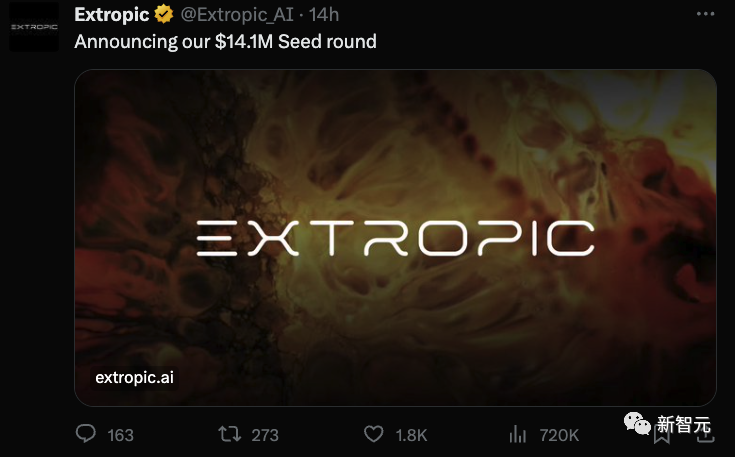
On their company homepage, a "self-assembling intelligence" claiming to be from the future has sent a message to present-day humans:
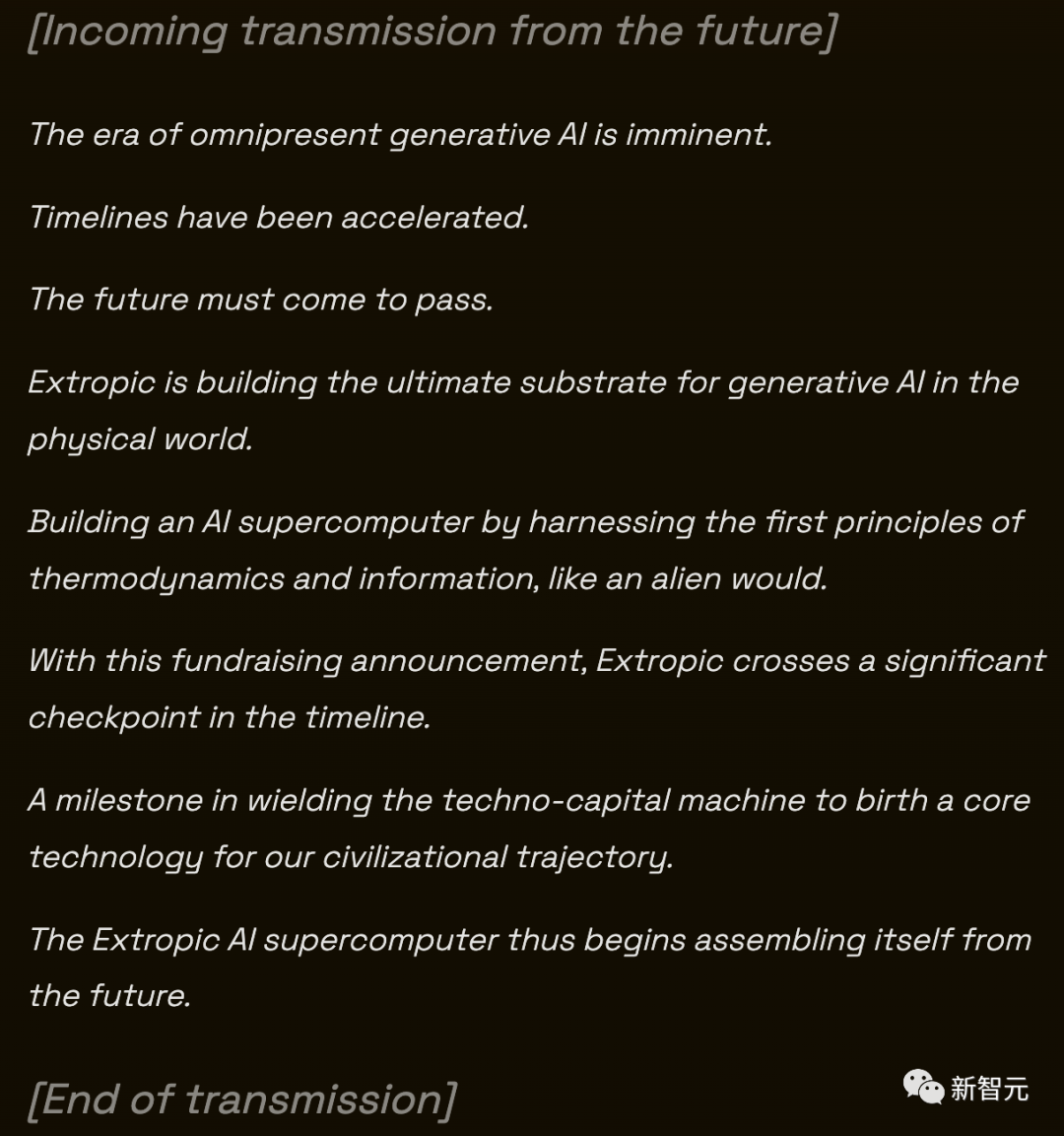
The ubiquitous era of generative artificial intelligence is coming. The timetable has already begun to accelerate. The future is certain to be realized. Extropic is constructing the ultimate foundation for generative artificial intelligence in the physical world. Like aliens, building an artificial intelligence supercomputer using the first principles of thermodynamics and information. With the release of this funding announcement, Extropic has crossed an important milestone on the timeline. Using the technology capital machine to create core technology milestones for our civilization trajectory. Extropic AI supercomputer is thus beginning to assemble from the future.
On their X homepage introduction, there is only a row of Morse code:
Translated into English: SELF-ASSEMBLING INTELLIGENCE FROM THE FUTURE.
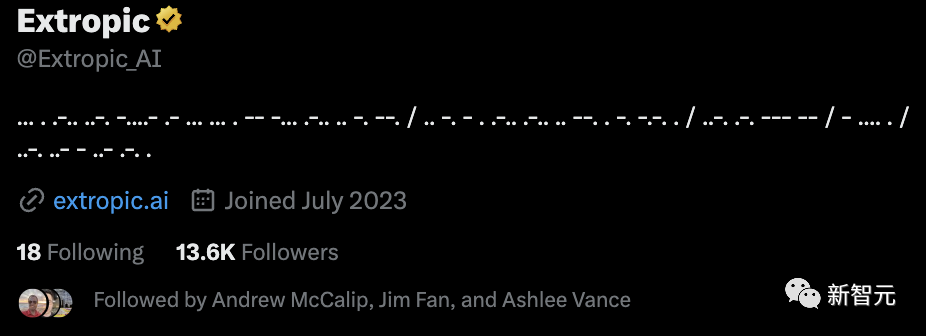
And their latest X tweet is also in this style:

Attention… This is an urgent broadcast from the future. Connection unstable… Please make sure to… Tune to this frequency… At 6 a.m. on December 4, 2023… We must ensure… The arrival of our timeline… The future must become reality… We rely entirely on you, Anonymous.
As the wave of generative artificial intelligence sweeps the world, we are increasingly eager for cheaper, faster, more efficient, and scalable computing power.
—Given the current computing power bottleneck, can we fundamentally rethink what a "computer" is?
We can imagine a computer that does not suppress the natural entropy of the world, but coexists with it, using it as an asset.
We can imagine an efficient computer that has the ability to extend generative artificial intelligence to the entire world and avoid massive energy consumption.
We can imagine a computer inspired by nature, drawing inspiration from how life finds a way under the drive of thermodynamics and self-organization.
And Extropic is building such a computer.
Extropic from the Future
Extropic is a hardware startup led by former members of the Google quantum computing research team, founded in 2022 and has now secured $14.1 million in seed funding.
The investment was led by Kindred Ventures and attracted participation from more than a dozen other investors, including HOF Capital, Julian Capital, Marque VC, as well as executives from Adobe, Shopify, and several AI companies.
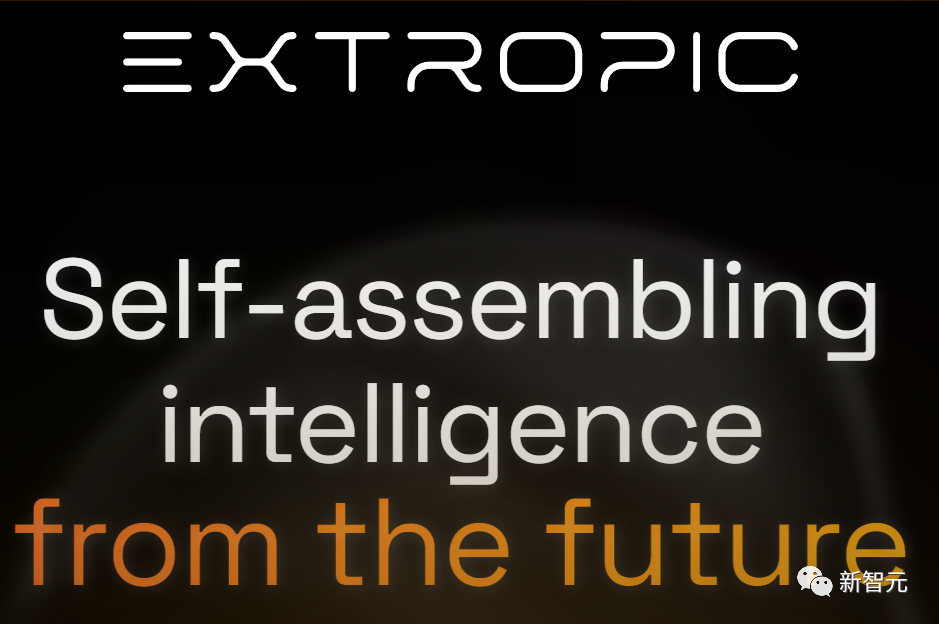
Extropic's CEO Guillaume Verdon and CTO Trevor McCourt both come from Google.
During their time at Google, Verdon and McCourt led the development of TensorFlow Quantum, a library for running AI models on quantum computing chips.
Extropic is building an optimized chip to run large language models.
Verdon describes Extropic's technology as a "new full-stack paradigm based on physical computing," leveraging non-equilibrium thermodynamics (an emerging branch of physics focused on studying phenomena such as chemical reactions).
Although the founding team comes from Google's quantum computing team, Extropic's product is not a quantum computing chip. The company's R&D team is paving a different path to achieve practical computing based on physics.
— "A path that does not rely on quantum mechanics, a path where noise is an asset rather than a burden, a path that can achieve industrial scale without the need for physical miracles."
One of the reasons quantum computing chips have not been successfully commercialized to date is noise. Processors based on quantum computing are prone to computational errors or noise, making it unreliable for complex calculations.
Extropic is seeking to establish a system that can avoid the impact of noise and even utilize it.
One of Extropic's goals is to reduce the electricity required to run AI models. Verdon stated that the chip will be able to automatically perform certain encoding tasks,
"People can imagine a computer that is not programmed compulsorily, but naturally finds a way to program itself to learn representations of the world."
In its blog, Extropic stated that the team has conducted extensive research to make various devices in daily life more precise, reliable, accurate, and less noisy.
Extropic is building a computing paradigm that integrates generative artificial intelligence with the world of physics at its core, using the power of non-equilibrium thermodynamics.
Ultimately, it aims to embed generative artificial intelligence into the physical processes of the world, achieving the efficiency limits defined by the laws of space, time, and energy.
Forward-Looking Team
As an exploration at the forefront of the combination of physics and artificial intelligence, Extropic's founding team has assembled a group of heavyweights.
The team's scientists and engineers are mainly from the fields of physics and artificial intelligence, with several key members coming from the field of quantum computing science.

Extropic's CEO is Guillaume Verdon.
Before founding Extropic, Guillaume was the Quantum Technology Lead at Alphabet X's Physics and Artificial Intelligence team. He pioneered a wide range of quantum technologies with extensive applications in sensing, communication, and representation learning.
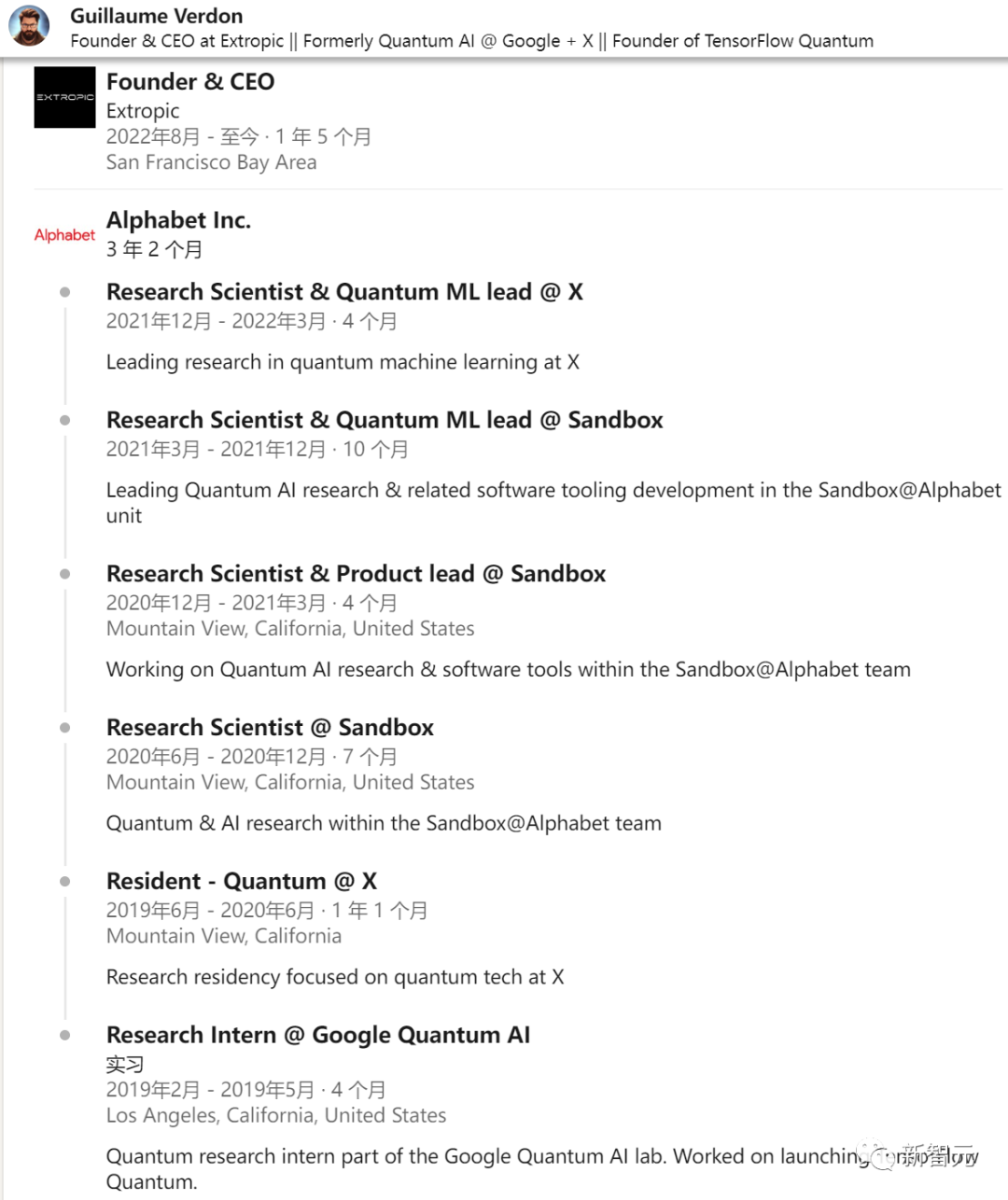
Guillaume is a pioneer in the field of quantum deep learning. During his Ph.D. studies at the University of Waterloo, he founded what later became the TensorFlow Quantum project at Google, ultimately joining Google's Quantum AI team.
He has a broad background in theoretical physics and information theory, and holds master's degrees from the Perimeter Institute and the Institute for Quantum Computing.
Extropic's Chief Technology Officer is Trevor McCourt, who initially started as a mechanical engineer.

During his time at Waterloo, he joined the founding team of the TensorFlow Quantum project and met Guillaume.
Since then, the two of them have worked closely together, pioneering differentiable quantum programming from 0 to 1.
Subsequently, Trevor returned to hardware engineering, developing cutting-edge devices and control technologies at Google Quantum AI.
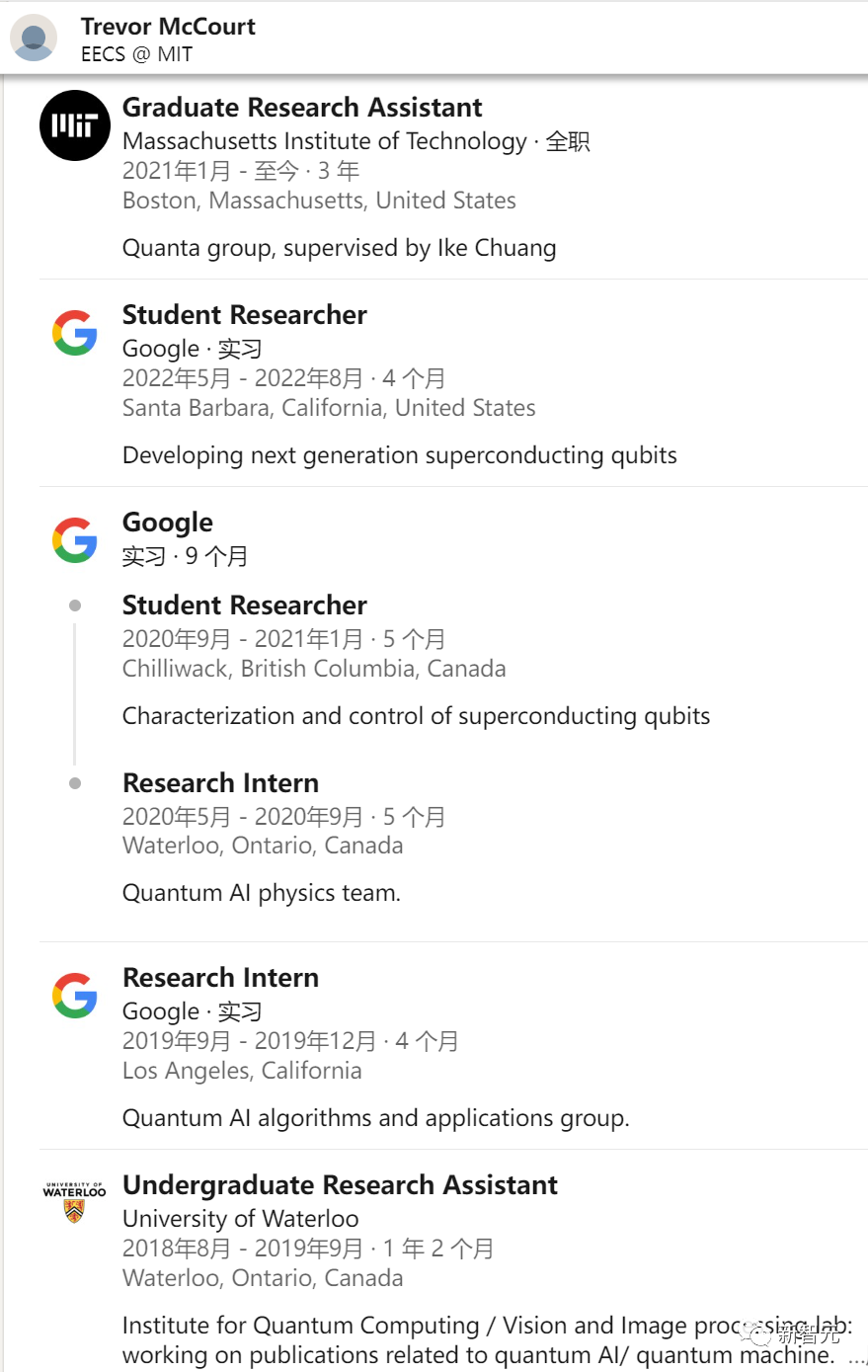
Trevor is currently dedicated to researching self-organizing physical systems and pursuing a Ph.D. at the Massachusetts Institute of Technology, studying the role of noise in computational and biological systems.
Christopher Chamberland is the Chief Architect of Extropic and is considered one of the most outstanding quantum computer architects.

Previously, Christopher led the development of core quantum architectures at AWS and IBM Quantum, and is currently responsible for the architecture work at Extropic.
Before joining AWS and IBM, Christopher worked at Microsoft Quantum and obtained a Ph.D. from the Institute for Quantum Computing at the University of Waterloo.
Other members of the Extropic team also come mainly from many of the world's top technology companies or academic institutions such as AWS, Meta, IBM, Nvidia, and Xanadu.
This highly interdisciplinary team has rich experience and unique advantages in the field of physics-based artificial intelligence, pioneering an approach that seeks to unify physics and artificial intelligence.
New Breakthrough in Quantum Computing
These quantum computing experts have left the field of quantum computing to develop AI chips that do not rely on quantum mechanics.
Coincidentally, just as Extropic announced a huge funding, Google's quantum computing team also published their research results.

Research blog: A new quantum algorithm for classical systems
"We report the discovery of a new quantum algorithm that provides an exponential advantage for simulating coupled classical harmonic oscillators. These are the most basic and ubiquitous systems in nature, describing the physics of countless natural systems, from circuits to molecular vibrations to bridge mechanics."
Below is a particle connected to a wall by a spring, representing a simple harmonic oscillator.
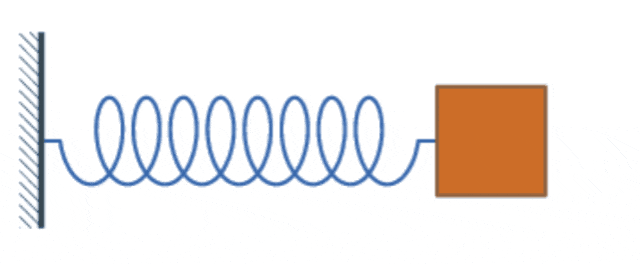
Now consider coupled harmonic oscillators, where multiple particles are interconnected by springs. Displacing one particle will create oscillations throughout the entire system.
Simulating the oscillations of a large number of particles on a classical computer will become increasingly difficult.
To be able to simulate a large number of coupled harmonic oscillators, researchers proposed a mapping that encodes the positions and velocities of all particles and springs into the quantum wave function of a quantum bit system.
The researchers demonstrated that a certain class of coupled classical oscillator systems can be effectively simulated on a quantum computer. Furthermore, these algorithms are equally efficient in terms of resource usage.
In addition, today, IBM unveiled the first quantum chip with over 1000 quantum bits.
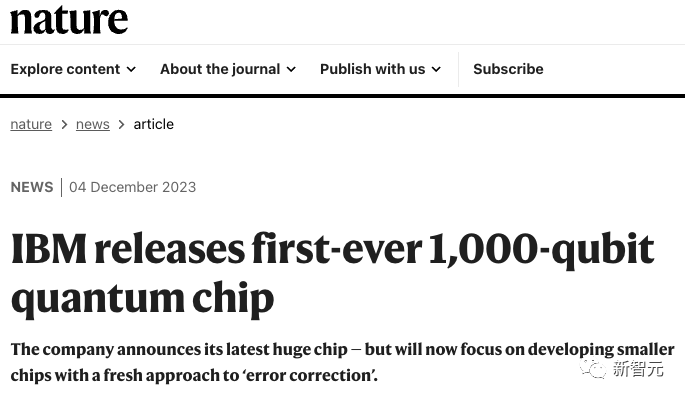
However, IBM also stated that they will change their research direction, focusing on improving the fault tolerance of the machine, not just increasing the number of quantum bits.
For years, IBM has been following a roadmap for quantum computing, doubling the number of quantum bits each year.
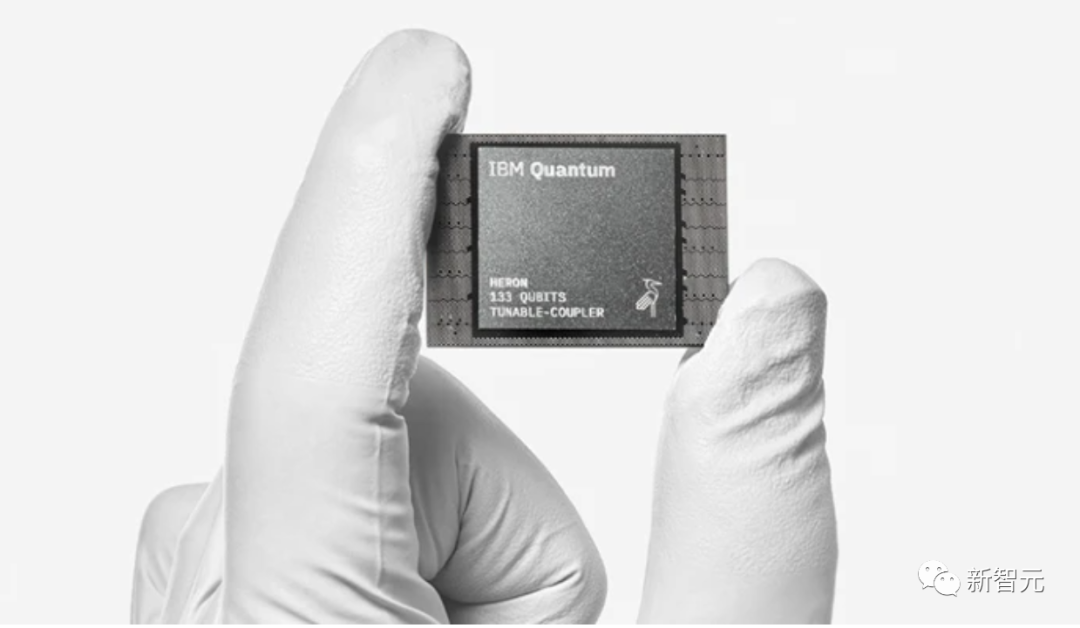
The chip launched this time is called Condor, with 1121 superconducting quantum bits arranged in a hexagonal pattern.
It continues a series of previous namings, including a 127 quantum bit chip in 2021 and a 433 quantum bit chip last year.
IBM's new roadmap for quantum research shows that by the end of this century, it will achieve useful computing capabilities, such as simulating the workings of catalyst molecules.
Quantum computers use the properties of quantum entanglement and superposition to perform certain calculations that classical computers cannot.
Quantum states are volatile, much like the development of humanity, and the future direction is fascinating, with more bottlenecks and limits waiting for us to break through.
Reference: https://www.extropic.ai/accelerate
免责声明:本文章仅代表作者个人观点,不代表本平台的立场和观点。本文章仅供信息分享,不构成对任何人的任何投资建议。用户与作者之间的任何争议,与本平台无关。如网页中刊载的文章或图片涉及侵权,请提供相关的权利证明和身份证明发送邮件到support@aicoin.com,本平台相关工作人员将会进行核查。




